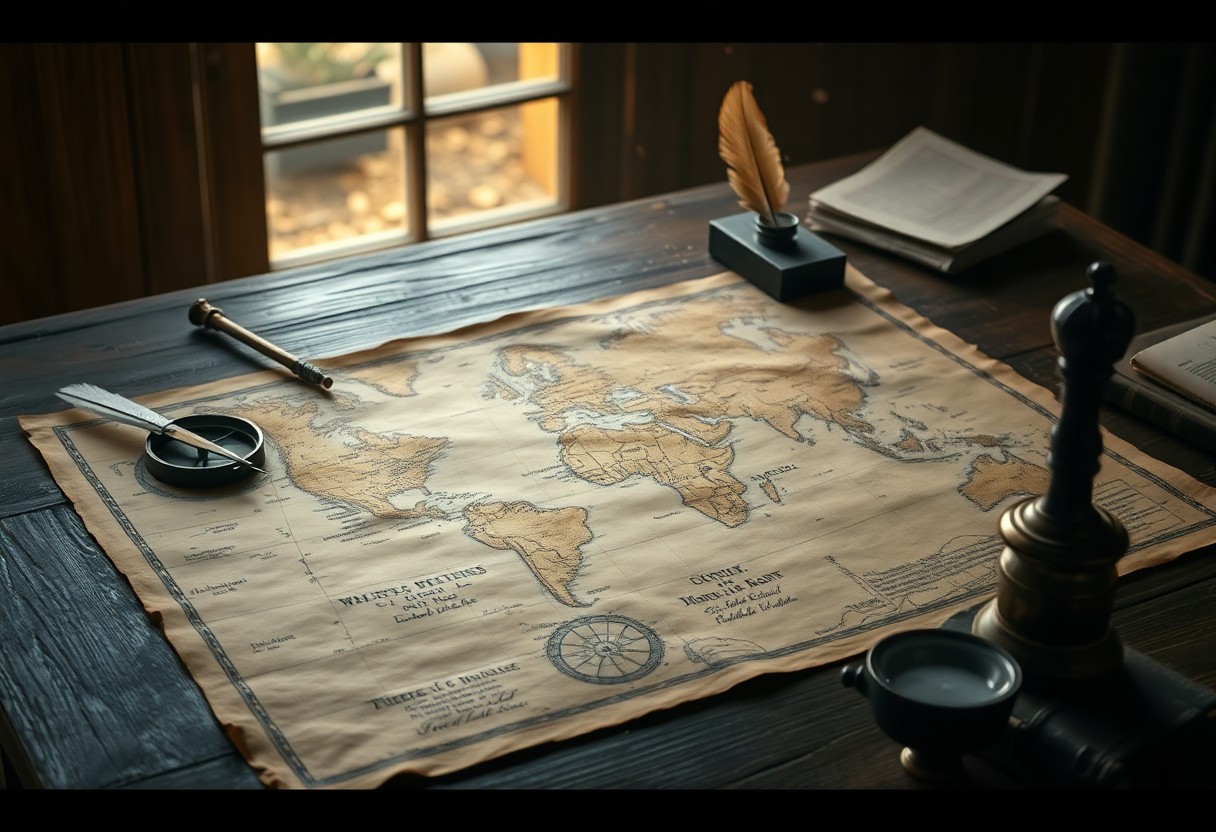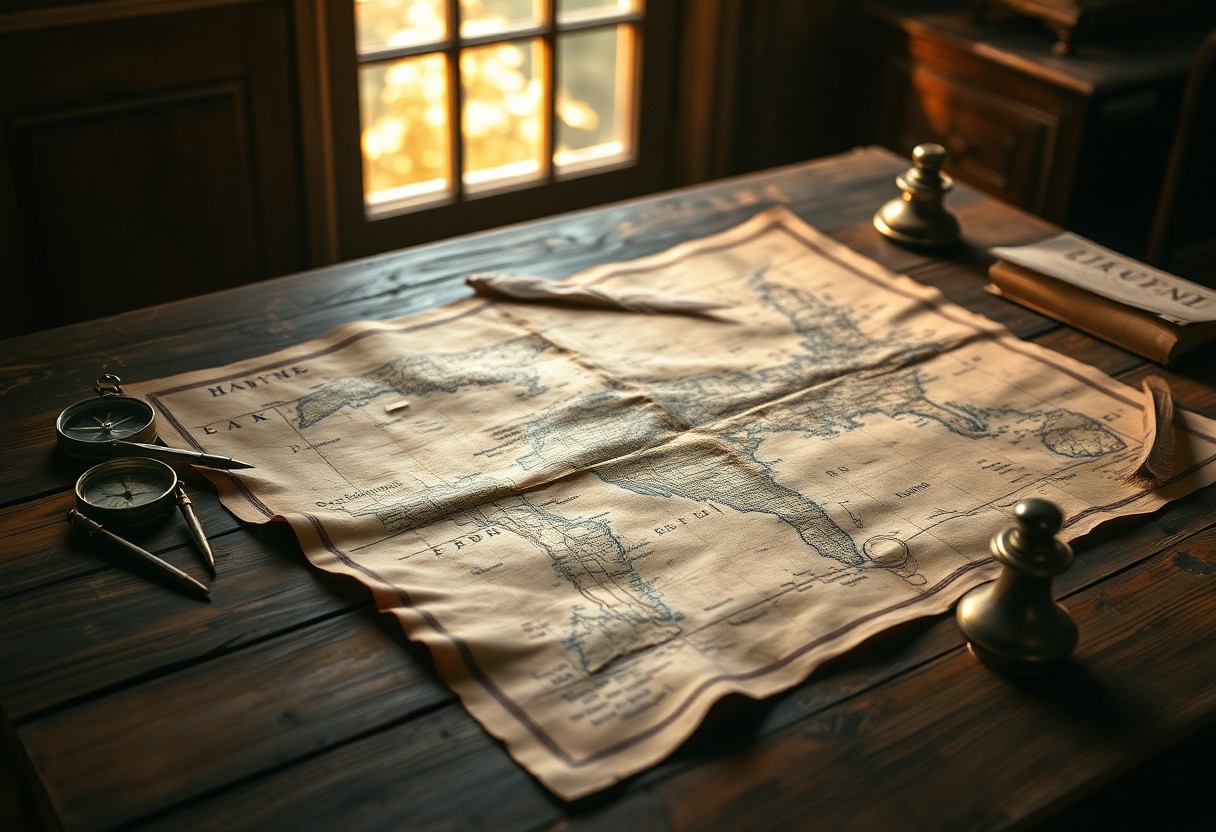You may find that pursuing a Master of European History (M.E.H.) offers a deep explore the continent’s complex past, enriching your understanding of its societies, cultures, and political dynamics. This degree not only sharpens your analytical skills but also equips you with valuable knowledge applicable in various careers such as academia, public history, and cultural institutions. As you explore pivotal events and influential figures, you’ll develop a well-rounded perspective that can enhance your critical thinking and research capabilities, making you a versatile candidate in an array of professional fields.
Key Takeaways:
- The Master of European History (M.E.H.) program emphasizes a deep understanding of significant events, movements, and figures that have shaped European history from antiquity to the modern era.
- Students in the M.E.H. program engage in critical analysis of historical texts, fostering skills in research, writing, and interpretation of primary and secondary sources.
- The program often includes opportunities for interdisciplinary study, allowing students to connect historical events with social, political, and cultural developments in Europe.
The Evolution of Historiography in Europe
The evolution of historiography in Europe reflects the changing nature of historical scholarship and the influence of societal developments on the interpretation of the past. From Herodotus’s narrative style to the analytical rigor of modern historians, this evolution has been shaped by political, cultural, and intellectual transformations across centuries. Each period introduced fresh methodologies, relevant perspectives, and shifting societal values, all of which enriched and diversified the field of history. Understanding these developments enables you to appreciate the complexities and nuances inherent in European historical narratives.
Shifts in Approaches: From Traditional to Modern
Shifts in historiographical approaches began with the transition from traditional narratives, which often glorified great leaders and events, to modern methodologies emphasizing critical analysis and diverse perspectives. As historians began to consider social, economic, and cultural factors, the focus expanded to include the voices of marginalized groups. This broader scope allowed for an inclusive understanding of historical events, thereby transforming European historiography into a more vibrant and nuanced discipline.
The Role of Culture and Context in Historical Interpretation
Culture and context play pivotal roles in shaping historical interpretation, influencing how events and figures are understood across different eras. Each generation interprets history through its unique lens, reflecting contemporary values, beliefs, and social structures. For instance, the rise of feminist historiography challenged traditional narratives, prompting a re-examination of women’s roles throughout history. This cultural shift not only broadened the parameters of historical inquiry but also illuminated previously overlooked perspectives, enriching your understanding of how context alters the narrative and meaning of historical events.
Focusing on the interplay between culture and historical interpretation reveals how dominant ideologies can shape the lens through which history is viewed. The emphasis on imperial narratives in the 19th century, for example, often overshadowed the experiences of colonized people, while post-colonial studies have since redefined how these histories are confronted and understood. By exploring these cultural impacts, you gain insight into re-evaluating historical accounts, understanding them as products of their time and context, ultimately leading to a more comprehensive grasp of European history’s multifaceted character.

Key Figures Who Shaped European Histories
Understanding the key figures who shaped Europe’s intricate tapestry is crucial for grasping the continent’s rich history. From monarchs and diplomats to revolutionaries and scholars, these individuals impacted political structures, social norms, and cultural landscapes. Their actions often dictated the course of national and regional narratives, reflecting prevailing ideologies and driving transformative movements. Engage with the lives of pivotal historical figures to appreciate how their decisions still resonate today.
Influential Historians: Contributions and Controversies
Historians such as Edward Gibbon and Eric Hobsbawm crafted narratives that altered perceptions of the past, offering insights into the rise and fall of empires and the dynamics of class struggles. Their distinctive interpretations frequently sparked debate within academic circles as their methodologies raised questions about objectivity and bias. Analyzing their contributions enables you to discern the complex interplay of scholarship and ideology throughout European history.
Impact of Political Agendas on Historical Narratives
Political agendas often shape historical narratives, influencing the portrayal of events and figures. Governments might emphasize certain aspects of history to foster national pride or legitimize policies. For instance, the Russian portrayal of the October Revolution highlights heroism while downplaying the violence and repression that followed. Understanding these biases allows you to critically evaluate historical accounts and acknowledge the power dynamics at play in the creation of collective memory.
The impact of political agendas on historical narratives is profound, as history is not merely the recounting of events but a tool wielded by those in power. In many cases, historical interpretations align with national or ideological goals, reshaping public perception and consciousness. The Spanish Civil War, for instance, has seen various representations influenced by shifting political powers—from post-Franco narratives seeking reconciliation to more recent movements aiming to highlight injustices. These variations underscore that understanding history requires a critical lens, revealing how memory and identity are constructed in the service of contemporary agendas.

The Intersections of History and Memory
Your understanding of history is often shaped more by memory than by the events themselves. These intersections reveal how societies construct narratives that serve not only to preserve the past but also to define present identities and future aspirations. The way you remember significant events guides collective beliefs, emphasizing certain aspects of history while silencing others, ultimately impacting cultural consciousness.
Collective Memory: Nationhood and Identity Formation
Collective memory serves as the backbone of nationhood, weaving together shared experiences that form identities. As you engage with historical narratives, you recognize that national pride often stems from selective recollections. These memories highlight common struggles and celebrate victories, fostering a sense of belonging among citizens, even as they may omit or reinterpret less favorable chapters of the past.
The Role of Monuments and Memorials in Shaping Historical Perception
Monuments and memorials play a pivotal role in curating public memory and shaping historical perception. They become sites of collective reflection, instilling values and narratives that reach far beyond mere historical facts. The design and placement of these structures often imply certain moral lessons, guiding you to interpret the past in specific ways. For instance, the Vietnam Veterans Memorial in Washington D.C. encourages contemplation of sacrifice and loss, while representations of conquerors and figures of colonial legacy can provoke discussions around nationalism and imperialism.
The influence of monuments extends beyond their physical presence; they shape discourse and collective sentiment around pivotal historical moments. Take, for example, the ongoing debates surrounding statues of controversial figures, such as Confederate generals in the United States. Each removal or preservation decision ignites public discourse regarding whose histories are celebrated or condemned. Thus, monuments not only commemorate notable events or individuals but also influence contemporary social dialogue, serving as platforms for varying interpretations of national identity and legacy.
Methodologies in European Historical Research
Different methodologies in European historical research allow you to explore the past through various lenses, enriching your understanding of historical narratives. The combination of quantitative and qualitative approaches provides a framework for constructing both broad-based insights and detailed accounts. Whether you are analyzing statistical data to draw trends or delving into personal experiences, these methods serve as crucial tools for dissecting the complexities of European history.
Quantitative Approaches: The Rise of Data-Driven History
Data-driven history embraces quantitative approaches to uncover patterns and trends within vast historical datasets. By utilizing statistical methods, historians can analyze demographic changes, economic developments, and social shifts, offering a more nuanced perspective on historical events. This methodology has been facilitated by advancements in technology, allowing for the collection and processing of extensive data sources, such as census records and economic statistics, that were previously unreachable.
Qualitative Methods: Oral Histories and Personal Narratives
Oral histories and personal narratives provide unique insights into lived experiences that is often absent in traditional historical records. By collecting firsthand accounts, you can access a multi-dimensional view of events, capturing the emotions and nuances of individuals who lived through pivotal moments in European history. This qualitative approach unveils the personal dimensions of historical events, allowing underrepresented voices to be heard and incorporated into the broader historical narrative.
Narrating events through oral histories highlights the subjective experiences of individuals, showcasing how their personal contexts influence their perceptions of major occurrences. For instance, collecting narratives from World War II veterans not only preserves their memories but also elucidates the complexities of warfare, resilience, and identity. By contrasting these accounts with military records or governmental documents, you can juxtapose official narratives with the lived experience, creating a more holistic understanding of the past. This emphasis on personal stories fosters empathy, enabling you to connect with history on a more intimate level while honoring diverse perspectives across Europe’s rich tapestry of history.
The Future of European History Studies
Your journey through European history reaches an exciting juncture, where innovative methodologies and shifting global perspectives reshape the field. As educators, scholars, and students engage with history in fresh contexts, you’ll find that traditional narratives are being re-examined and expanded. This transformation opens pathways for interdisciplinary collaboration and connections beyond Europe’s borders, allowing you to contribute to a more nuanced understanding of historical legacies. The future promises dynamic approaches to analyzing and teaching European history, reflecting the complexity of our contemporary world.
Emerging Trends: Digital Humanities and Global Perspectives
The integration of digital humanities in your study of European history allows for innovative research methodologies, offering access to vast databases, interactive timelines, and digital archives. This evolving landscape encourages global perspectives, helping you to analyze European history not in isolation but within the context of worldwide events. By combining quantitative data with qualitative narratives, you can uncover narratives that highlight cultural exchanges and influences, enriching your understanding of Europe’s connected past.
Challenges Ahead: Navigating Political and Cultural Shifts
Political and cultural shifts pose significant challenges for the future of European history studies, as narratives around nationalism and identity increasingly dominate discussions. Movements across Europe frequently reshape public perceptions of historical events, often questioning long-standing interpretations. As you navigate debates surrounding immigration, sovereignty, and the legacy of colonialism, you’re encouraged to critically assess how these issues impact historical scholarship and your own understandings of Europe. The clash of differing perspectives often complicates consensus, leading you to reframe questions and address sensitive topics with nuanced approaches.
As you encounter political movements emphasizing nationalism, you’ll face the challenge of addressing history in ways that promote dialogue rather than division. Using case studies from recent elections and societal movements can illustrate how current events echo past struggles. Engaging with diverse narratives and marginalized voices in your research will allow for a more comprehensive examination of European history. These challenges don’t merely inhibit progress; they invite critical thought and encourage you to create a more inclusive narrative that reflects the complex, multifaceted nature of the continent’s past and present.
Final Words
The Master of European History (M.E.H.) program equips you with a comprehensive understanding of the continent’s dynamic past. By exploring diverse historical narratives and methodologies, you refine your analytical and critical thinking skills. This degree not only enhances your academic credentials but also prepares you for various career paths, from education to research. Engaging with scholarly debates and primary sources allows you to contribute meaningfully to discussions on European heritage. Ultimately, your journey through this program will deepen your appreciation for the complexities of European history.

